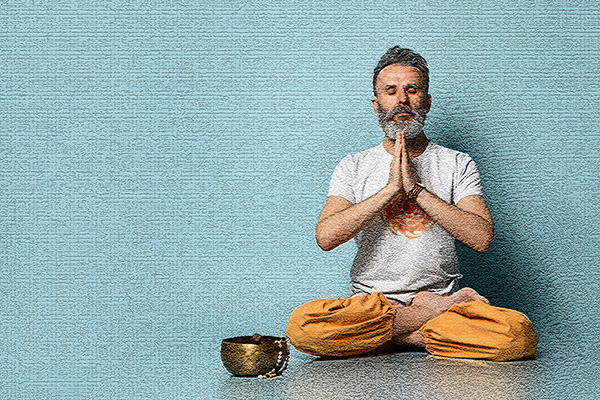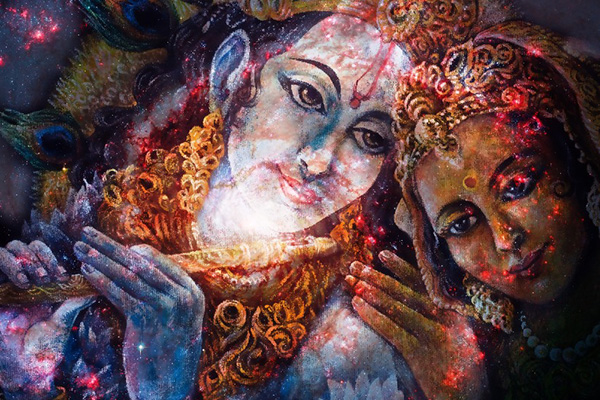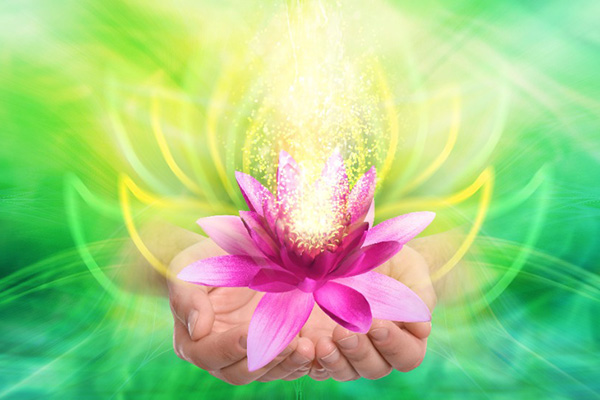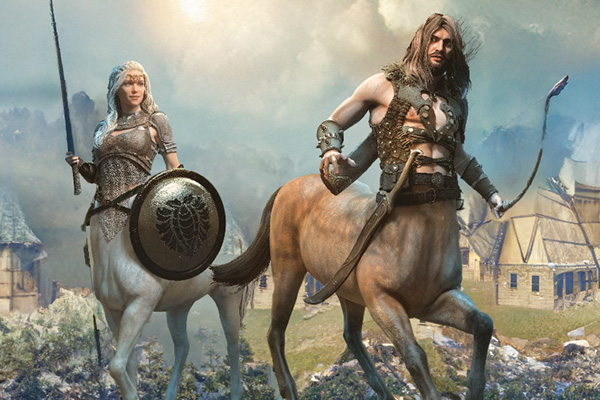deities
Painting As A Powerful Spiritual Practice
 As a visual artist, I find painting to be a powerful tool for spiritual growth and manifestation. Art has been used as a medium for self-expression and energy channeling for centuries. Painting in particular is an enlightening way to tap into one’s innermost thoughts and feelings and connect with your higher self.
As a visual artist, I find painting to be a powerful tool for spiritual growth and manifestation. Art has been used as a medium for self-expression and energy channeling for centuries. Painting in particular is an enlightening way to tap into one’s innermost thoughts and feelings and connect with your higher self.
One of the ways that painting can be particularly helpful in growth and healing is that it offers a way for us to let go of what no longer serves us. We too often hold onto old traumas, fears, and limiting beliefs that keep us stuck in negative patterns. Channeling these toxic thought patterns and emotions into art can help us to release it and create space for new energy to flow in.
The act of painting itself can be deeply meditative and calming, allowing the artist to quiet the mind and tap into their intuition. When we allow ourselves to be mindful and entirely present in the moment and focus solely on the act of creating, we access a state of energetic flow that is incredibly soothing, healing, and transformative.
Additionally, painting can be used as a powerful tool for manifesting. When we create art with a specific intention in mind, we are essentially using our thoughts and imagination to give physical form to that intention. Making an original painting is much more powerful and intentional than creating a vision board, for example. By painting images and scenes of the things we desire, we are sending a clear message into the universe that we are ready to receive it.
Faith As A Spiritual Science
 It is generally assumed that all forms of ‘faith’ is merely matter of ‘belief.’ In other words, to have faith is seen as having belief that is blind; it is a belief without reason, evidence, or experience. However, there is another kind of faith that develops through a reciprocal relationship.
It is generally assumed that all forms of ‘faith’ is merely matter of ‘belief.’ In other words, to have faith is seen as having belief that is blind; it is a belief without reason, evidence, or experience. However, there is another kind of faith that develops through a reciprocal relationship.
According to the Vedic teachings and the practices of Krishna Bhakti (awareness of, and affection for Krishna, the Supreme Person) faith begins with hearing spiritual knowledge from a liberated soul, who is beyond the four defects of material conditioning.
Ordinary people (or conditioned souls) have four defects due to their contact with material existence. These defects are:
- The tendency to make mistakes.
- To be illusioned.
- The propensity to cheat others.
- To have imperfect senses.
At the initial phase of faith, there is an appeal to the intelligence of the conditioned soul that evokes exploration of knowledge through hearing deeper spiritual insights, which in turn appeals to their intelligence to apply it.
From the experiment of applying it, comes observable experiential results that corroborate the truth of what was initially heard from the transcendental authority (liberated soul).
This confirming experience not only yields faith in the knowledge and process applied, but it also forms an evidential knowing beyond a mere baseless, ‘blind’ belief. Therefore, developing a relationship with God through Bhakti-Yoga or Krishna Consciousness is a spiritual science.
The Selfless Flow Of Divine Love
 Love is a divine spiritual energy. It originates in the divine heart of the Supreme Personality of Godhead. The internal energy of his love is so strong that it emanates out of his body as love personified, in the form of the Supreme Goddess.
Love is a divine spiritual energy. It originates in the divine heart of the Supreme Personality of Godhead. The internal energy of his love is so strong that it emanates out of his body as love personified, in the form of the Supreme Goddess.
In the spiritual tradition of Bhakti, which is founded on the Vedas, a collection of religious texts originating in ancient India, the Supreme Goddess is identified by the Sanskrit term shakti, the primordial divine feminine energy, and the Supreme God as shaktiman, the divine masculine source of this cosmic energy.
She also bears the name Radha, meaning she who gives the greatest pleasure to him, whom she calls by the name Krishna, the ‘all-attractive.’ Together, they form the Divine Couple, an eternal reservoir of reciprocal divine love which ever increases.
Love is alive. It is a living, giving, and flowing force. Love, like God, is unlimited and ever-expanding. Divine Love offers its transcendence for us souls in this world to follow, serve, and ultimately return to our original, eternal spiritual nature.
Our spirit, soul or jivatma is therefore an expression of the primordial energy of the shaktiman, which emanates both from and for his love. Whereas Radha’s love is infinite, we individual souls are infinitesimal. We merely serve to enhance and celebrate with our supreme existence the Divine Couple’s infinite love, which in turn imbues our souls with joy.
One way our soul can serve the joy and union of the Divine Couple in this world is by allowing the spiritual energy of love to flow through our own heart to others. The beauty of true love is that it is never selfish and does not seek to satisfy the demands of the ego. Like a river rippling toward the ocean, divine love courses toward the one it fills with its own essence.
The Supreme Source Of All Healing
 Spiritual practice is unique for every individual. I have been drinking from the well of wisdom in the Vedas for the past 35 years, especially the Srimad-Bhagavatam, also known as the Bhagavata Purana, one of Hinduism’s eighteen great puranas.
Spiritual practice is unique for every individual. I have been drinking from the well of wisdom in the Vedas for the past 35 years, especially the Srimad-Bhagavatam, also known as the Bhagavata Purana, one of Hinduism’s eighteen great puranas.
The Vedas are the original Sanskrit texts of India’s ancient spiritual culture featuring a vast body of wisdom in every field of human life, to help the soul navigate this world and reach the ultimate destination beyond.
This ancient manual of life was compiled by Srila Vyasadeva, who is revered by great saints and seers as a literary incarnation of God. In Sanskrit, he is called a saktyavesa-avatara, which means one who is empowered with energy of Divinity to fulfill a distinct purpose. In the case of Vyasa, his Divine purpose was the writing of everything that humans need to know to fulfill their aims and completely awaken spiritually.
Although Vyasadeva was an avatar, and therefore not an ordinary person, he felt despondent after composing all the Vedas. His guru, Narada Muni, the great sage among the demigods, then appeared to him and explained that the cause of his despondency was that he had not yet fully glorified the personal feature of the Absolute Truth.
Taking this to heart, Vyasadeva then meditated deeply on the Supreme Personality of Godhead and wrote Srimad-Bhagavatam from his matured and purified realization.
In Vyasadeva’s own estimation, the most profound of all spiritual wisdom within the Vedas is found within the Srimad-Bhagavatam. And the cream of that cream he describes as bhakti, devotional service to the Supreme Personality of Godhead.
Ravished By A Sacred Centaur
 I have studied healing for many years. Since making a conscious decision to embark on my true life journey, I have experienced many powerful teachers. Much of my work has taken me into uncharted waters and I have learned to welcome diving deep.
I have studied healing for many years. Since making a conscious decision to embark on my true life journey, I have experienced many powerful teachers. Much of my work has taken me into uncharted waters and I have learned to welcome diving deep.
As the world speeds up, I have slowed down over this last portion of my life, to recover from an illness that I thought might take my life. This process has brought me to waters so uncharted they seem otherworldly, and perhaps they are. Fortunately, I have fully re-entered the world I thought I might have to leave, and fully accept the entire experience as a blessing.
Over this time, I encountered Chiron, the original Wounded Healer. He is a centaur in Greek mythology who was gravely injured and had the opportunity to forever leave his battlefield for the Garden of the Gods. But he chose to stay on the battlefield instead of going to paradise, in order to assist others who were wounded.
I have known Chiron practically all my life, so having a rendezvous him at a major crossroads in my life was no surprise. What was however totally surprising, was that this time I finally fell in love with this benevolent being.
There were many times, especially this last time, when I ran from Chiron’s embrace. I needed to be back in the world I had left behind, where I am primarily committed to helping others. However, there is also a practical reality to deal with. Our modern world is not an easy place to thrive in. Many barely survive physically, mentally or emotionally.
There is also an unspoken, yet imposed maximum period of recovery from illness, much like the time allotted to grief in our culture – a brief period before we are expected to re-engage with the ‘normal’ world and get on with life. But both healing and grief are highly personal journeys, and how it uniquely unfolds for each person is not for others to dictate, prescribe or judge.

